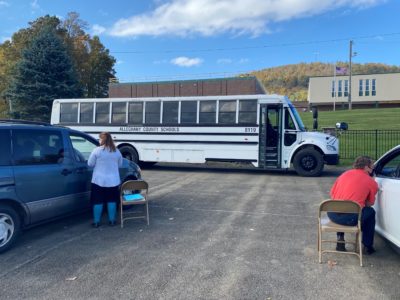

As North Carolina enters our eighth month of pandemic-related restrictions, colleges and K-12 school systems are still struggling to figure out how best to deliver quality education to students, both in person and online. Although there has been some information sharing between the two sectors regarding resources and new approaches, it’s understandable that each is focusing first on its own students and challenges.
That’s not to say, however, that opportunities don’t exist to collaborate on issues beyond COVID-19. Colleges and universities can help local school systems meet growing challenges for today and beyond in the following three ways.
Help teachers deliver engaging online instruction
Universities and education technology organizations that have been in the online learning space for a long time have much guidance and advice to impart to K-12 teachers endeavoring to transform their in-person instruction into high-quality online learning experiences.
Western Governors University (WGU) recently partnered with Global Online Academy (GOA), a nonprofit organization that empowers students and teachers to thrive in a globally networked society, to offer the Next Generation Teaching Series to public school districts across the country, helping them respond to the significant professional development needs during, and after, the coronavirus pandemic.
The Next Generation Teaching Series is a four-course program, offered online and asynchronously, designed to help K-12 educators reimagine their instruction for today’s online classroom.
“This kind of program will empower teachers to reimagine what’s possible in how they teach and reach their students,” said Michael Nachbar, executive director of GOA.
Offer TA-to-teacher scholarships
Institutions of higher learning that offer bachelor’s degrees in education already offer numerous scholarships to prospective teachers. Likewise, TeachNC does a good job of consolidating scholarship listings in an online resource.
While seeking to fill the pipeline of future teachers, we should not overlook Teacher Assistants. Dr. Robert Taylor, superintendent of Bladen County Schools, recently said, “Teacher assistants are an undervalued resource within education, and a TA-turned-teacher is something every school needs.”
Colleges should partner with school districts, particularly in rural areas, to establish designated TA-to-teacher scholarship programs. Combined with Pell Grants and other resources, these scholarships should make it as affordable as possible for TAs to earn their bachelor’s degrees and become certified teachers. They already know the school and the students, and some just need encouragement and assistance to take the next step to become teachers.
Assist with remedial education
According to myFutureNC, 87% of North Carolina high school students graduate but only 41% of residents aged 18-24 are enrolled in a postsecondary institution. Of those who do enroll, only 77% of them continue to a second year of enrollment. Many drop out for financial reasons, but it’s also true that many students were not prepared academically for college rigors.
WGU Academy was established in 2019 to help solve the growing college-readiness gap. As an independent operating unit of WGU, WGU Academy’s goal is to provide aspiring students with a low-cost and low-risk way to meet college and university admission requirements, help them develop academic aptitude and habits, and empower them to become the resilient learners they want and need to be in order to succeed.
Recognizing that this model might also benefit high school students who require remedial math and English, WGU is piloting a program with two rural school districts in North Carolina. Participating students receive not only academic assistance but also one-on-one coaching to help them learn to navigate challenges that arise once they embark on their post-secondary journey.
We might not have all the answers, but institutions of higher education can certainly work with the K-12 community throughout the state to help improve the quality of online instruction, help rural school districts fill their pipeline of teacher openings with current TAs, and help at-risk students earn their high school diplomas and be better prepared for college.




